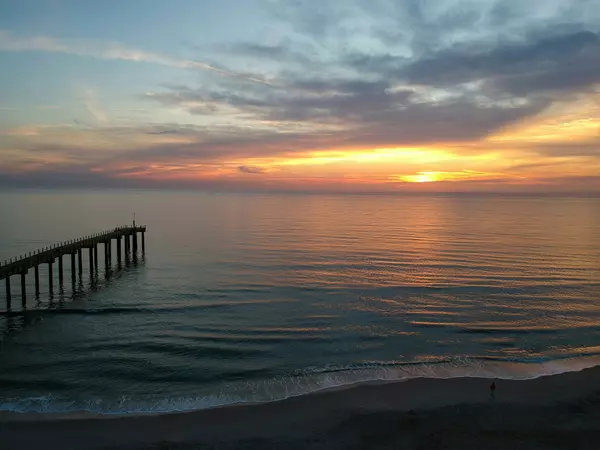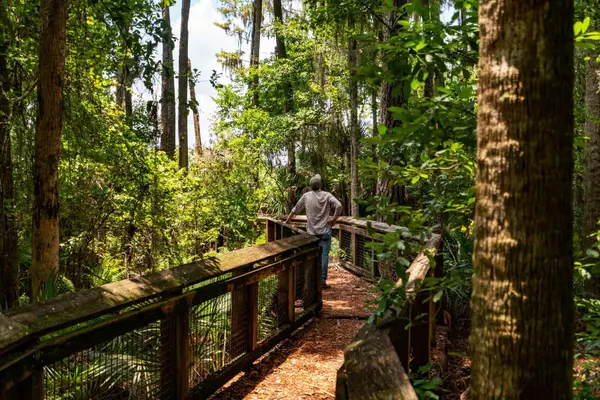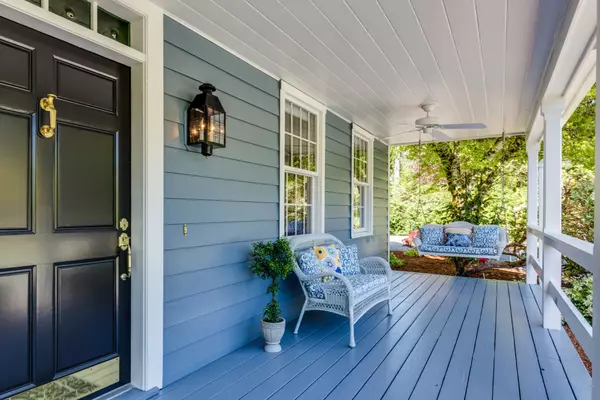5 Things to Know Before Relocating to St. Augustine
This blog outlines five key considerations for relocating to St. Augustine with tips to ensure a seamless transition.

5 Things to Know Before Relocating to St. Augustine
Moving to a new city is exciting, but preparation makes all the difference. If you plan to relocate to St. Augustine, here are five essential things to remember to ensure a smooth transition. 1. A Rich Historical Heritage St. Augustine was founded in 1565 by Spanish explorers, making it the oldest continuously inhabited European-established settlement in the United States. Its history is evident in its well-preserved architecture, cobblestone streets, and numerous historical landmarks like the Castillo de San Marcos and the Fountain of Youth Archaeological Park. What This Means for You: Cultural Immersion: Living here means daily exposure to a unique blend of Spanish, British, and American history. Tourist Attractions: While this enriches the local culture, it also means that tourist activity is high year-round, especially in the historic downtown area. 2. The Impact of Tourism Tourism is a significant part of St. Augustine's economy. The city's historical sites, beautiful beaches, and annual festivals attract visitors worldwide. Considerations: Seasonal Crowds: Expect increased traffic and crowded public spaces during peak tourist seasons and holidays. Economic Opportunities: The tourism industry provides ample hospitality, retail, and service job opportunities. Community Events: Numerous festivals and events offer entertainment options, but may lead to road closures and increased noise levels. 3. Subtropical Climate & Weather St. Augustine enjoys a subtropical climate characterized by hot, humid summers and mild winters. The city experiences abundant sunshine, making it ideal for outdoor enthusiasts. Weather Highlights: Summer Heat: Temperatures often soar into the 90s°F (30s°C) with high humidity. Hurricane Season: Running from June to November, preparing for potential tropical storms and hurricanes is essential. Mild Winters: Winters are pleasant, with temperatures averaging in the 60s°F (15-20°C), allowing for year-round outdoor activities. 4. Cost of Living & Housing Market While St. Augustine offers many amenities, it's important to understand the cost implications of living in this historic city. Financial Insights: Housing Costs: The median home price is slightly above the national average, influenced by the city's desirable location and historical significance. Property Taxes and Insurance: Living in a coastal area may mean higher property insurance rates due to flood and hurricane risks. Cost of Living: Other living expenses like groceries, healthcare, and utilities are around the national average. 5. Lifestyle & Community St. Augustine offers a laid-back lifestyle with a strong sense of community. The city's residents are known for their southern hospitality and active community involvement. Lifestyle Features: Outdoor Activities: From surfing at St. Augustine Beach to hiking in Anastasia State Park, there's no shortage of outdoor recreation. Arts and Culture: The city boasts a bustling arts scene with galleries, theaters, and live music venues like the St. Augustine Amphitheater. Education: St. Johns County School District is the number 1 school district in the State of Florida, and the city is home to Flagler College, adding to the educational opportunities. Community Engagement: Local farmers' markets, art walks, and community events foster a close-knit community feel. Conclusion Relocating to St. Augustine offers a chance to experience a city rich in history and modern amenities. Understanding the area's key features, from its active tourism scene to its subtropical climate, can help you make a confident decision and ensure a smooth transition. Check out our relocation guide here for more details, and feel free to contact me with any specific questions about relocating to St. Augustine!

Home Inspection Preparation: What St. Augustine Sellers Need to Know
Selling your home in St. Augustine? Preparing for a home inspection is a crucial step that can make or break your deal. A little preparation ensures transparency, avoids surprises, and helps you confidently sell your home. 1. Understand What Inspectors Look For A home inspection evaluates your property’s condition to give buyers peace of mind. Inspectors typically assess: Roof and Gutters: Inspect for leaks, missing shingles, or drainage issues. Plumbing: Check for leaks, water pressure, and functional drains. Electrical Systems: Test wiring, outlets, and panels for safety and compliance. HVAC: Evaluate heating and cooling systems for efficiency and age. Foundation and Structure: Look for cracks, uneven floors, or other signs of settling. Pests and Mold: Common in Florida’s humid climate, termite or mold damage is a red flag. Schedule a pre-listing inspection to uncover and address issues before the official one. 2. Declutter & Deep Clean A clean, organized home makes the inspection smoother and leaves a great impression. Declutter spaces like basements and attics to ensure inspectors can access key areas easily. Declutter storage spaces to showcase their capacity. Clean HVAC filters and vents to show the system is well-maintained. Deep clean windows and walls, especially in areas prone to mold or grime. Sellers should consider renting a storage unit for excess furniture and personal items to create a more spacious look. 3. Address Minor Repairs Small issues can raise big red flags. Fixing them beforehand can save you from renegotiations or a dropped deal. Fix leaky faucets and running toilets. Patch holes in walls and replace cracked tiles. Ensure all light fixtures and outlets work. Fixing minor repairs before listing helps reassure buyers and keeps your sale process moving smoothly. 4. Check Major Systems Buyers expect major systems like HVAC, plumbing, and electrical to be in working order. HVAC: Service the system to ensure it runs efficiently. Plumbing: Check for leaks under sinks and around fixtures. Electrical: Hire a licensed electrician to confirm safety standards are met. Ignoring signs of wear on major systems could lead to costly renegotiations. 5. Boost Curb Appeal The inspection starts the moment the inspector arrives. Enhance your home’s exterior to make a great first impression. Clean gutters and pressure wash driveways. Mow the lawn and trim bushes. Repair cracked walkways and repaint your front door. Enhancing curb appeal creates a welcoming first impression that helps attract more buyers to your property. 6. Provide Documentation Organized records can make a big difference. Create a folder with: Maintenance logs for HVAC, plumbing, and electrical systems. Recent repair receipts. Manuals and warranties for appliances. A well-documented home shows buyers you’ve maintained the property responsibly. 7. Ensure Full Access Make the inspector’s job easy by providing full access to all areas of the home, including: Attic and basement. Garage and crawlspaces. Utility rooms and outdoor areas. Sellers should unlock gates and ensure keys to sheds or detached structures are available to facilitate the inspection process. 8. Be Ready for Common Florida Issues St. Augustine’s unique climate can contribute to specific problems. Address these proactively: Moisture and Mold: Ensure proper ventilation and use dehumidifiers in damp areas. Pests: Schedule a pest control service to treat for termites and other critters. Hurricane Damage: Repair any weather-related damage, especially to roofs and windows. Water damage is a common concern for Florida homeowners, making it essential to proactively check for and address leaks or drainage issues. 9. Be Transparent About Known Issues Florida law requires sellers to disclose known defects. Honesty builds trust and reduces the likelihood of complications. Provide a written disclosure form outlining any repairs or issues. Address buyer concerns proactively to prevent deal-breaking surprises. Concealing problems can lead to legal disputes post-sale. 10. Be Prepared to Negotiate Even with thorough preparation, inspections can uncover surprises. Be flexible and open to negotiation. Offer credits for repairs rather than tackling them yourself. Consult with your agent to determine what concessions make sense. Resolving issues amicably often keeps deals intact and avoids delays. Conclusion Preparing for a home inspection in St. Augustine ensures a smoother, less stressful selling process. By addressing issues upfront, maintaining transparency, and presenting your home in its best light, you’re more likely to secure top dollar. Ready to list your home? Let’s work together to make the selling process seamless. Contact me today for personalized guidance and expert advice. Your St. Augustine home is one step closer to SOLD!

Why January and February Are the Best Time for a Crowd-Free Visit to St. Augustine, FL
January and February are ideal for exploring St. Augustine without the usual tourist crowds. If you’ve been looking for a quiet, enjoyable way to experience Florida’s oldest city, this is your opportunity. These months provide a more relaxed and authentic way to discover all St. Augustine offers. Escape the Tourist Rush One of the biggest advantages of visiting St. Augustine in January and February is the significantly smaller crowds. Popular landmarks like the Castillo de San Marcos and St. George Street are much easier to explore without the usual peak-season congestion. You can take your time enjoying the history and atmosphere without feeling rushed or crowded. Plan your visits in the morning for an even more peaceful experience. A leisurely stroll through the historic district is especially enjoyable when you’re not navigating large groups of people. Enjoy Mild & Comfortable Weather St. Augustine’s winter weather is a key reason to visit during January and February. With temperatures averaging between 60°F and 70°F, you’ll enjoy outdoor activities without the intense heat and humidity of the summer months. Pack a light jacket for the cool mornings and evenings, but expect comfortable conditions for exploring the city or relaxing at the beach during the day. Clear skies and mild breezes make these months particularly enjoyable. Seasonal Deals on Accommodations The winter season often means discounted accommodation rates, from hotels in the historic district to beachside vacation rentals. With fewer travelers in town, you can find excellent options at lower prices than during peak travel times. Neighborhoods like Lincolnville and Anastasia Island offer a range of convenient and affordable stays. Look for winter specials on travel websites or contact local properties directly for the best rates. More Personal Experiences at Attractions January and February offer a more personalized experience at St. Augustine’s attractions. Smaller tour groups mean better opportunities to engage with guides and ask questions. Whether on a ghost tour or exploring the Flagler College campus, you’ll have more space and time to enjoy the experience. Photography enthusiasts will also appreciate the chance to capture stunning shots of landmarks and natural scenery without competing with large crowds. Just be sure to reserve tickets for popular tours in advance to avoid any inconvenience. Relaxing Beach Days St. Augustine’s beaches are peaceful during the winter months. Locations like Vilano Beach and Anastasia State Park are quiet, providing an excellent environment for walking, reading, or simply enjoying the ocean views. Winter also brings unique wildlife viewing opportunities. Birdwatchers, in particular, will appreciate the variety of species visible during this time of year. If you’re an early riser, consider heading to the beach for a sunrise—it’s an unforgettable way to start the day. Discover Local Hidden Spots The slower pace of January and February makes exploring less-traveled areas of St. Augustine easier. Visit Lincolnville to learn about its rich history, or take a guided tour of the Old Jail or the Lightner Museum. With fewer visitors, these sites feel more accessible and enjoyable. Locals are often more approachable during the off-season and may share insights or recommendations that can enhance your trip. Exploring during this quieter period allows you to connect more deeply with the city’s history and culture. Winter Festivals & Events St. Augustine hosts several unique events in January and February. For instance, the St. Augustine Film Festival attracts film enthusiasts while maintaining a relaxed atmosphere. The iconic Nights of Lights extends into January, offering one last chance to see the city illuminated. Check event schedules in advance and secure tickets early. Attending these events without the usual crowds makes them even more enjoyable. Dining Adventures Without the Wait With fewer visitors in town, dining becomes more accessible during winter. Top restaurants in St. Augustine often have available reservations, and the quieter atmosphere allows you to enjoy your meal without feeling rushed. Take advantage of the fresh, locally sourced seafood that’s in season. Restaurants serving oysters, shrimp, and other local favorites often highlight these items in their winter menus. Be sure to confirm operating hours, as some establishments may have reduced schedules during the off-season. Quieter Outdoor Activities Outdoor activities in St. Augustine are delightful in January and February. Whether kayaking along the waterways, hiking the trails at Anastasia State Park, or golfing at one of the area’s courses, you’ll encounter fewer crowds and more peaceful surroundings. Dress in layers to stay comfortable throughout the day. These months are also perfect for exploring the area’s natural beauty, so don’t forget essentials like sunscreen and water to stay prepared. Conclusion January and February are the perfect months for a quiet and fulfilling visit to St. Augustine. With smaller crowds, pleasant weather, and affordable accommodations, these months provide a refreshing way to explore the city. Whether walking the cobblestone streets, enjoying a quiet beach or discovering a local landmark, this time of year offers a unique and memorable experience. Start planning your visit today to make the most of this peaceful season.
Categories
Recent Posts











